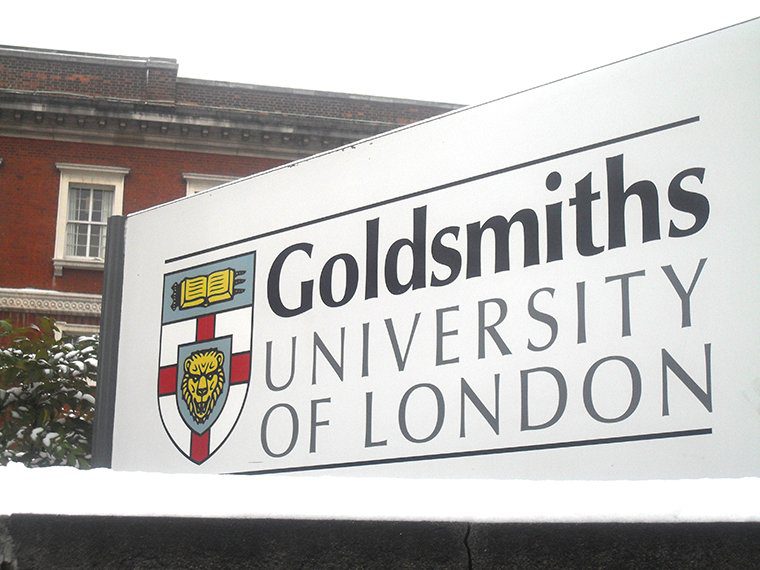
Social entrepreneurship is similar to entrepreneurship but there are subtle and distinct differences. Social entrepreneurs have in the past found educational opportunities lacking in their field. However, the considerable growth in social entrepreneurship in recent years has led some innovative and customer focused educational institutes to hone in on market needs and offer an MA in Social Entrepreneurship.
One such institute is Goldsmiths in London. This helps to support social entrepreneurs to develop and sustain business solutions to address some of the most challenging and difficult problems that we face in society today.
The MA in Social Entrepreneurship has a varied target market. One of the most important, arguably, is current social entrepreneurs who want to increase their expertise. It also targets undergraduates that have a desire to get involved in the field of social entrepreneurship as change makers and social innovators. There are also intrapreneurs who are interested in organisational transformation, particularly in the creative sector, but also in other sectors. Policy makers may also benefit from such a course of study, and so too may analysts and knowledge experts. Clearly the degree has a broad appeal to a wide ranging market, all of whom can benefit from the wisdom imparted.
In terms of what is studied, there are five core modules of focus for this course. These include theories of creative, cultural and social entrepreneurship, entrepreneurial modelling, social entrepreneurship policy and frameworks, social return on investment and its principles and practice and a research or project based dissertation. The goal is to provide students with innovative approaches to getting involved in developing an enterprise, in addition to providing confidence with the financial matters of social entrepreneurship. Interestingly the course is taught not just by professors but also social entrepreneurs and leading professionals who are able to impart real life stories to learn from.
There is also a heavy focus on group projects and activities which are specifically designed to help students to develop the team working skills and interpersonal communication skills that will be needed to succeed in social enterprise endeavours.
The goal of all of this is to help students to gain a real life, but critical and sociologically informed understanding of this new and rapidly changing sector. The programme aims to help students to get involved in the social innovation community in London, which is known for its excellent links with other social entrepreneurial communities across the globe. The course sets students up to be ideally placed for future careers in the social innovation sector. It also seeks to provide real expertise in social return on investment and to help students to learn how to use entrepreneurial modelling methodologies. One key goal is to help students by furnishing them with the skills that they need to be able to consult in this sector or to become knowledge leaders following completion of their course. While a traditional academic programme in some senses, Goldsmiths is eager to emphasise that it is quite unlike traditional business/management-driven courses in the field.
This is due to the fact that it deeply examines practicalities and theoretical implications of social innovation on the one hand, while on the other hand it offers a unique access to a learning community that is continually growing. In addition to their studies, students are encouraged to get involved with other areas that will benefit their social entrepreneurship career in the future. For example, there is a student blog that they are encouraged to write for, known as The Golden Angle. Students are also encouraged to develop their own social enterprise, as well as to get involved with public speaking and develop interactive research projects.
Students that take this innovative MA programme stand a good chance of becoming thought leaders of the future in the social entrepreneurship sector. Goldsmiths reports that past graduates have set up their own social enterprises or have progressed to work for highly prestigious organisations focused on a social entrepreneurship theme. Others have enjoyed the opportunity to get involved with advanced research into this important area of learning. The MA offered by Goldsmiths can be taken over one full time year, or across two years part time and the price for a full time year-long programme at the current time for UK or EU students is £8,200.

Paula Newton is a business writer, editor and management consultant with extensive experience writing and consulting for both start-ups and long established companies. She has ten years management and leadership experience gained at BSkyB in London and Viva Travel Guides in Quito, Ecuador, giving her a depth of insight into innovation in international business. With an MBA from the University of Hull and many years of experience running her own business consultancy, Paula’s background allows her to connect with a diverse range of clients, including cutting edge technology and web-based start-ups but also multinationals in need of assistance. Paula has played a defining role in shaping organizational strategy for a wide range of different organizations, including for-profit, NGOs and charities. Paula has also served on the Board of Directors for the South American Explorers Club in Quito, Ecuador.











